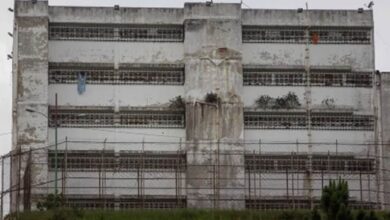Is your baby allergic to cow’s milk?
Listen this article
The allergy to cow's milk can affect a large percentage of the child population. Here we tell you a little more about it

Although they say that breast milk is the best food for any child, some can not consume any type of milk because they are allergic to lactose, one of the sugars it contains. Here we will tell you what this type of allergy consists of and what your treatment is.
Leer en español: ¿Es tu bebé alérgico a la leche de vaca?
What is the allergy to cow's milk?
According to the website Desarrollo Infantil, lactose is a sugar that is present in cow's milk, in sheep's milk and also in human milk. Intolerance to this type of sugar affects the immune system, which causes when the milk is ingested because the child does not have an enzyme called lactase.
What are the main symptoms?
The main symptoms of lactose allergy are abdominal pain accompanied by diarrhea (often with blood), inflamed abdomen, itching throughout the body, intense vomiting, swelling of the eyes and mouth and also flatulence. As a consequence, allergy brings weight loss, mainly due to the child's poor nutrition.
It is important to know that allergy to cow's milk protein is not the same as lactose intolerance. Although the symptoms are very similar, the treatments are very different. The allergy carries with it a immune problem, causing the antibodies to attack the milk protein, which leads to various reactions that can be observed with the naked eye with the consumption of a small portion of milk, while intolerance attacks the digestive system.
We recommend: Baby diarrhea: causes, symptoms and treatment
What is the right treatment?
In the case of cow's milk allergy, the only appropriate treatment is to maintain a lactose-free diet. This means that all types of foods that contain this protein should be avoided. During the first 6 months, it will be necessary for the child to drink milk of special formula that does not contain lactose but offers the same nutrition as breast milk.
When the baby begins to eat solid foods – this will depend on the pediatrician, as some advise that they do so after 4 months and others after 6 months of life – it will be necessary to review the diet and avoid all those foods that are derived from milk such as cheese and yogurt, among others. It is important that you are given the same nutrients that you would get from the milk. Therefore, it is advisable to continue supplying milk with special formulas.
Does it have a cure?
The cow's milk protein allergy occurs during early childhood and, as time goes by, it disappears as the child grows. In 80% of cases, the little one heals before age 5. There is a small percentage of patients who suffer from this allergy more intensely, which can cause them to suffer throughout their lives.
If you suspect that your baby may be allergic to milk, do not waste time and visit the pediatrician as soon as possible.
LatinAmerican Post | Marcela Antonacci
Translated from "¿Es tu bebé alérgico a la leche de vaca?"





